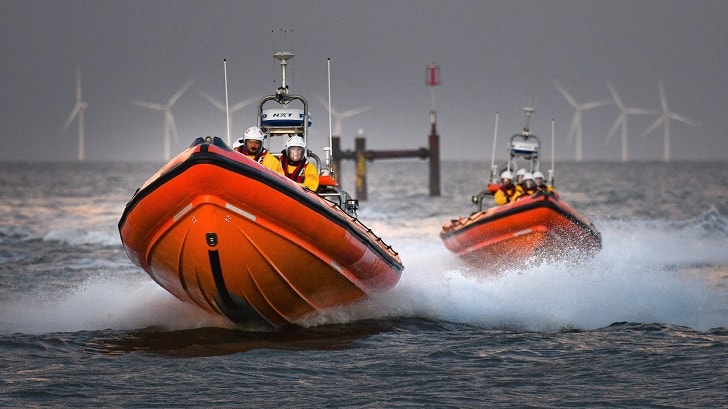
Along with other lifeboat stations in the UK and Republic of Ireland, volunteers at Margate and Ramsgate RNLI lifeboat stations are reflecting today (March 4) on the charity’s 200 years of history – and counting.
Founded in 1824, the RNLI is commemorating its remarkable history and achievements along with the commitment of all those who have been part of the RNLI family over the past two centuries.
On the day the charity turns 200, the RNLI is revealing its lifeboat crews and lifeguards have saved an incredible 146,277 lives during its two centuries of lifesaving.
An RNLI lifeboat station was established in Margate in 1860, since when the all-weather and inshore lifeboats have launched 3,368 times and saved 1,495 lives (up to 31 December 2023) with ten offshore (later re-named all-weather) lifeboats having served the station.
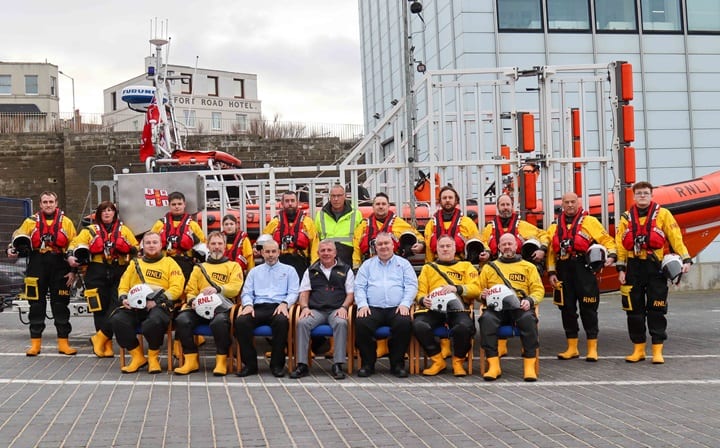
The boats were originally on a carriage hauled by horses before Margate became a slipway-launched lifeboat station in 1898 and a tractor and carriage station in 1978. Currently the station operates the Atlantic 85 B class inshore lifeboat Colonel Stock and D class inshore lifeboat Alfred Alexander Staden.
In 1897 Margate experienced tragedy when the town’s surf boat Friend To All Nations, which operated alongside the RNLI lifeboat, capsized while on a rescue with the loss of nine of the crew, only four surviving. The same crewmembers often manned both the surf boat and lifeboat.
World War Two was a notable period in the station’s history when the lifeboat rescued downed British, allied and German aircrew along with the crews of ships that fell victim to mines. In 1940 the lifeboat, manned by the station’s own crew, took part in the evacuation of British and allied troops from the beaches of Dunkirk. The coxswain, along with the coxswain of Ramsgate lifeboat which also took part in the evacuation were awarded Distinguished Service Medals for their contribution.
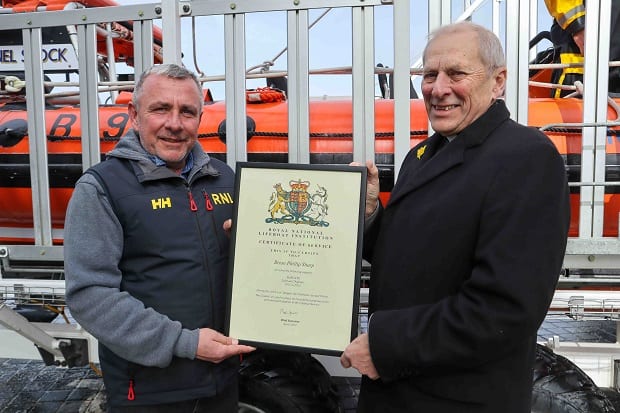
Derek Amas, Lifeboat Operations Manager, RNLI Margate said: “Two hundred years is an amazing achievement for the RNLI, but everything that has been achieved in that time has only been possible thanks to ordinary people doing extraordinary things be it the boats’ crews, fundraisers, or our shore crew.
“I am very proud to lead the team who operate and maintain our two inshore lifeboats along with the launch and recovery equipment here at Margate. For us, the current team, we are carrying the baton for the future crews, fundraisers and supporters while paying tribute to the work and accomplishments of those who have gone before us.”
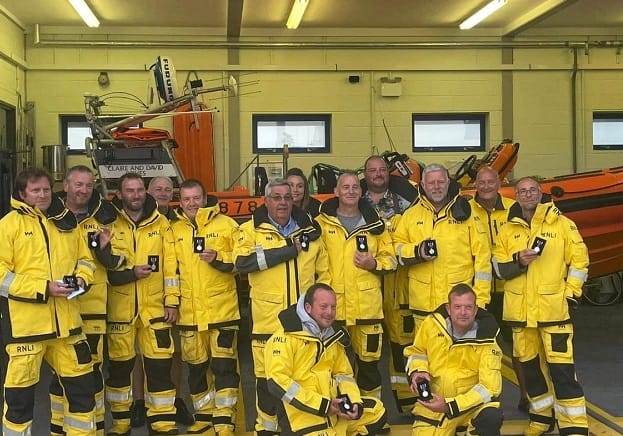
Ramsgate RNLI lifeboat station was founded in 1802 by the trustees of the Harbour and in that time its crews have launched the lifeboats 4561 times and saved 2566 lives.
Ramsgate Station actually predates the RNLI and is one of the oldest lifeboat stations in the British Isles. During its history the crews have been presented with more than 50 awards for gallantry.
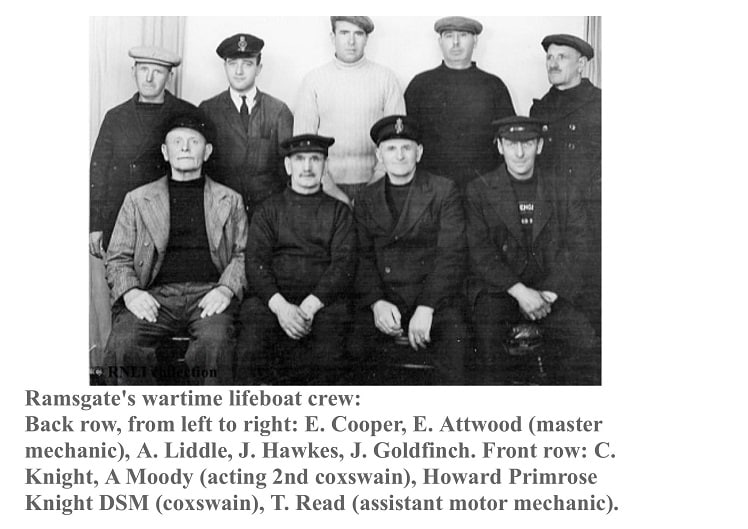
One such award, the distinguished service medal, was issued during the evacuation of troops from Dunkirk in 1940 when the Lifeboat Prudential was the first little ship to the rescue with Coxswain Howard Primrose Knight in command of her crew of eight men. They were credited with rescuing 2,800 troops from the beaches.
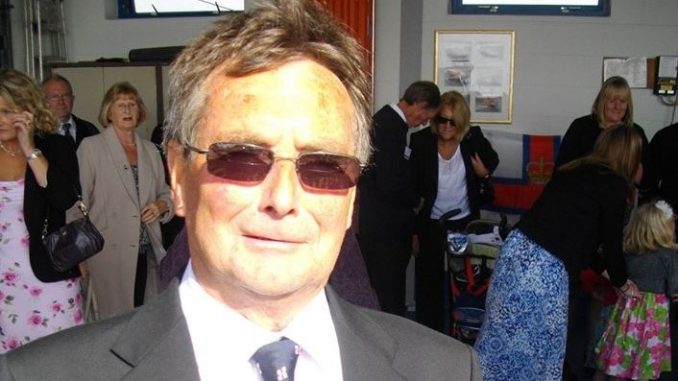
In more recent times Coxswain Ron Cannon, father of current Coxswain Ian and deputy Coxswain Paul, was honoured with the MBE, Order of the British Empire in 2017.
A Service of Thanksgiving to mark 200 years of the RNLI will take place at Westminster Abbey in London today. It will be attended by representatives from RNLI lifesaving communities around the UK and Ireland, including volunteer crew Clive Nichols and Simon Ellis and volunteer Press Officer Karen Cox with Mags Wright the volunteer Shop Manager from Ramsgate RNLI lifeboat station.
A spokesman from Ramsgate RNLI lifeboat station said: “This will be especially poignant as our Chairman of Thanet Fundraising Sarah Hewes was also meant to have attended but sadly she passed away recently. We will all be thinking of her on this special day.”

Coxswain Ian Cannon said, “The RNLI has been saving lives for 200 years and we’re the latest in a long line of crew carrying on the lifesaving work which has been carried out by many generations before us. The equipment and the waterproof clothing that we use may be modern but the actual role of saving lives is still exactly the same as it was 200 years ago.”
To mark the 200th Anniversary Ramsgate Lifeboat Station will be holding an open day on Saturday 18th May from 11am until 4pm at the Lifeboat Station to which everyone will be welcome. Look out for the posters soon.
Founded in a London tavern on 4 March 1824 following an appeal from Sir William Hillary, who lived on the Isle of Man and witnessed many shipwrecks, the RNLI has continued saving lives at sea throughout the tests of its history, including tragic disasters, funding challenges and two World Wars.
Two centuries have seen vast developments in the lifeboats and kit used by the charity’s lifesavers – from the early oar-powered vessels to today’s technology-packed boats, which are now built in-house by the charity; and from the rudimentary cork lifejackets of the 1850s to the full protective kit each crew member is now issued with.
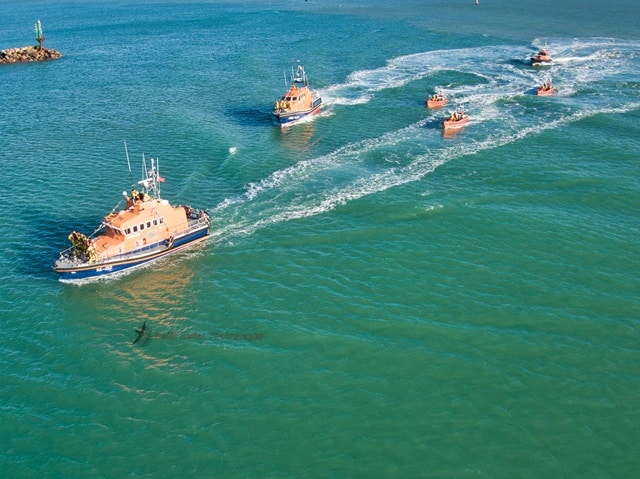
The RNLI’s lifesaving reach and remit has also developed over the course of 200 years. Today, it operates 238 lifeboat stations around the UK and Ireland, including four on the River Thames, and has seasonal lifeguards on over 240 lifeguarded beaches around the UK. It designs and builds its own lifeboats and runs domestic and international water safety programmes.
While much has changed in 200 years, two things have remained the same – the charity’s dependence on volunteers, who give their time and commitment to save others, and the voluntary contributions from the public which have funded the service for the past two centuries.
RNLI Chief Executive, Mark Dowie, said: “It has been an honour and a privilege to be at the helm of the RNLI for the past five years, and to see the charity reach its bicentenary. For a charity to have survived 200 years based on the time and commitment of volunteers, and the sheer generosity of the public donating to fund it, is truly remarkable. It is through the courage and dedication of its incredible people that the RNLI has survived the tests of time, including tragic losses, funding challenges, two World Wars and, more recently, a global pandemic.
“Today, we mark the bicentenary of the RNLI. We remember the achievements and commitment of all those who have been part of the RNLI family over the past two centuries; we celebrate the world-class lifesaving service we provide today, based on our 200 years of learning, expertise and innovation, and we hope to inspire future generations of lifesavers and supporters who will take the RNLI into its next century and beyond.”
For further information about the RNLI’s 200th anniversary, visit RNLI.org/200.

